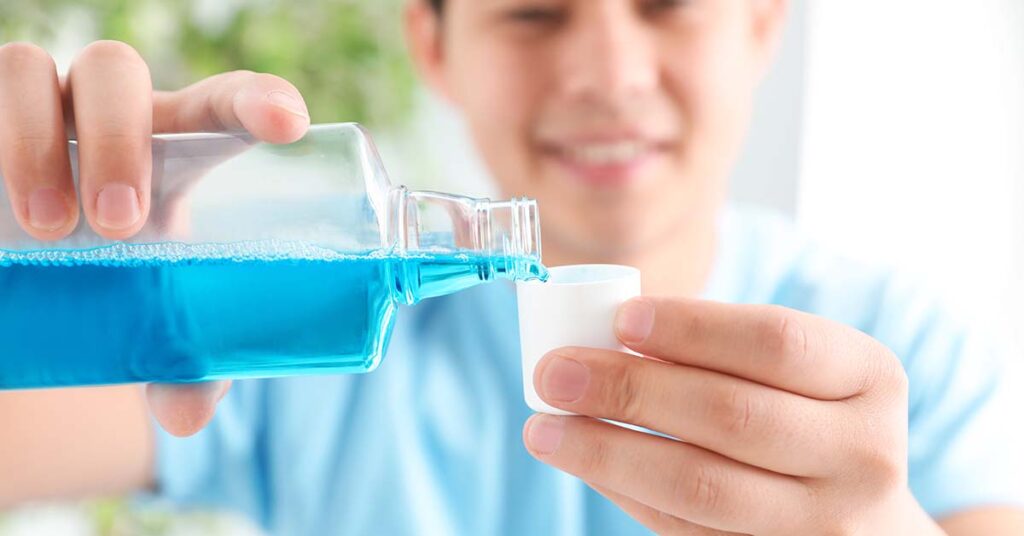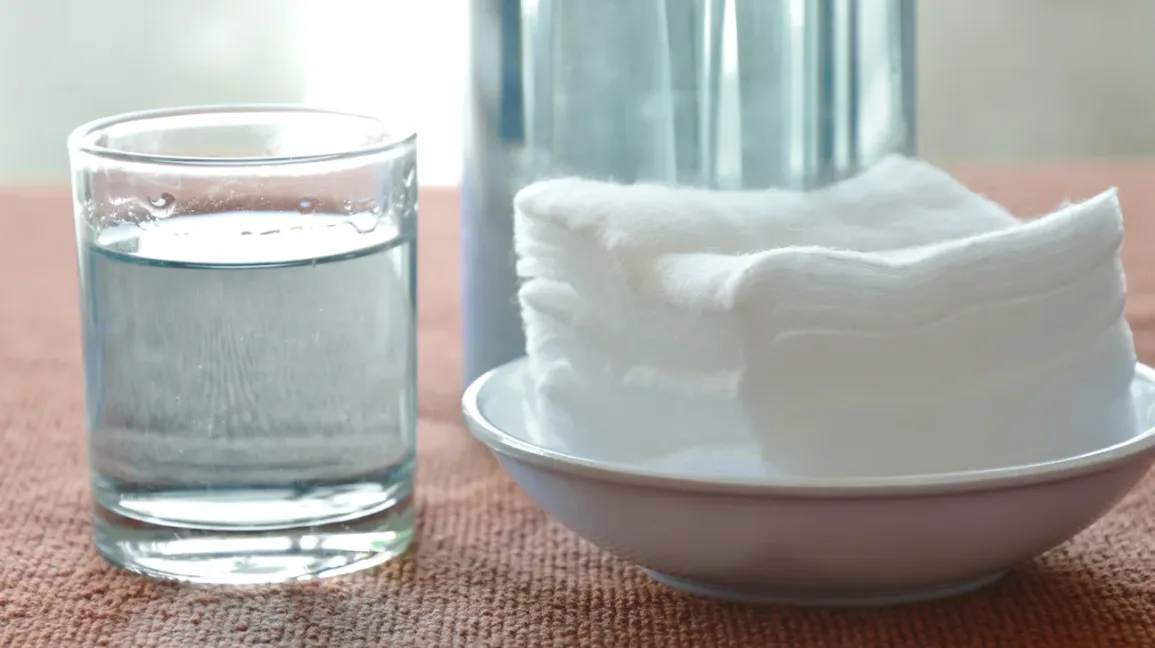When it comes to prostate health, many individuals explore a variety of remedies, ranging from traditional treatments to unconventional methods. One such remedy that has sparked curiosity is hydrogen peroxide. Often touted in alternative medicine circles, hydrogen peroxide is claimed by some to offer benefits for prostate health.
In this blog, we will explore whether hydrogen peroxide is truly beneficial for prostate health, and discuss safer alternatives for maintaining a healthy prostate.
Hydrogen Peroxide and Its Impact on Prostate Health
Hydrogen peroxide is commonly used as a disinfectant and antiseptic to clean wounds, helping to kill bacteria and prevent infection by releasing oxygen when applied. In households, it’s often used for cleaning purposes, stain removal, and as a mild bleach. It also serves a role in the food industry as a disinfectant and is sometimes involved in water treatment processes.

Hydrogen peroxide is also promoted for a wide array of uses, including treating infections, aiding detoxification, and even as part of oxygen therapy. Some proponents claim that hydrogen peroxide could benefit prostate health by improving oxygen supply to tissues, which could, in theory, support the health of the prostate. However, there is no substantial scientific evidence to back these claims, and medical professionals typically advise caution against using hydrogen peroxide internally for health purposes due to its potential risks.
Recommended: Can Ejaculating Too Soon After a Vasectomy Damage It?
While hydrogen peroxide may offer certain benefits in cleaning and wound care, it is important to focus on proven methods for maintaining prostate health, such as a balanced diet, regular exercise, and routine medical checkups.
Can Hydrogen Peroxide be used for prostate health?
Hydrogen peroxide is not a recommended treatment for prostate health. While it is widely used as a disinfectant and antiseptic in medicine and household cleaning, there is no scientific evidence to support its effectiveness in promoting prostate health.
Some alternative medicine advocates suggest that hydrogen peroxide may help by improving oxygen supply to tissues, which could theoretically benefit the prostate. However, these claims lack reliable clinical backing, and using hydrogen peroxide internally can pose health risks. Medical professionals caution against using hydrogen peroxide for self-treatment, especially for internal purposes. For maintaining prostate health, it’s best to rely on proven methods such as a balanced diet, regular exercise, and routine medical checkups.
Potential Risks of Using Hydrogen Peroxide for Prostate Health
Using hydrogen peroxide for prostate health can cause various damages to the body, some of which may include:
Tissue Damage
When hydrogen peroxide is used improperly, particularly in high concentrations, it can cause irritation and damage to sensitive tissues. In the case of prostate health, applying hydrogen peroxide directly or using it internally may lead to inflammation, burning, or even chemical burns in the prostate tissue, which could worsen existing conditions rather than improve them.
Gastrointestinal Issues
Ingesting hydrogen peroxide, especially in larger quantities, can result in significant gastrointestinal distress. This includes symptoms such as nausea, vomiting, and abdominal pain. Hydrogen peroxide can irritate the stomach lining and lead to further complications like gastric ulcers or bleeding. It poses a serious risk to the digestive system, making it unsuitable for internal use in managing prostate health.
Respiratory Problems
Hydrogen peroxide releases oxygen when it breaks down, and inhaling its fumes can irritate the lungs and respiratory system. This can lead to symptoms such as coughing, shortness of breath, and chest tightness. Prolonged exposure to hydrogen peroxide vapors, especially in poorly ventilated spaces, may cause respiratory distress and damage to lung tissue.

Oxidative Stress
Although hydrogen peroxide is an oxidizing agent, excessive use can paradoxically contribute to oxidative stress in the body. The compound may lead to the generation of harmful free radicals, which can increase inflammation and cellular damage, particularly in prostate cells. This could potentially aggravate prostate-related conditions or even promote the development of cancerous cells over time.
Mucous Membrane Damage
When hydrogen peroxide is ingested or applied to mucous membranes, such as those in the digestive tract or urinary system, it can cause serious irritation. This can lead to damage of the mucosal lining, resulting in bleeding, pain, and discomfort. In severe cases, it could disrupt the body’s natural protective barriers, leaving tissues vulnerable to infection or further injury.
Recommended: Masturbation After Vasectomy: Things You Need to Know
Lack of Scientific Support
There is no substantial or credible scientific research backing the use of hydrogen peroxide for prostate health. Despite some claims in alternative medicine, the evidence is either anecdotal or not rigorous enough to warrant its use. Medical professionals caution against relying on hydrogen peroxide for prostate-related issues, as its benefits have not been proven by peer-reviewed studies.
Disruption of Cellular Balance
Hydrogen peroxide can interfere with the body’s natural processes at the cellular level. In an attempt to fight infections or manage inflammation, it may inadvertently disrupt the balance of healthy cells and tissues in the body, leading to negative consequences. Overuse or improper use could make prostate health worse, causing damage to the very cells that need to be protected or healed.
Alternative Practices For Prostate Health
Maintaining prostate health is essential for overall well-being, especially as men age. Unlike using unproven remedies such as hydrogen peroxide, adopting scientifically supported practices can lead to effective and long-lasting results. Here are detailed, evidence-based alternatives for promoting prostate health:
Prostate-Friendly Diet
Incorporate foods rich in nutrients and antioxidants, such as tomatoes (lycopene), green tea (catechins), cruciferous vegetables like broccoli and kale (sulforaphane), and fatty fish like salmon (omega-3 fatty acids). These can help reduce inflammation, support prostate health, and potentially lower the risk of prostate cancer.
Regular Exercise
Engage in consistent physical activities such as aerobic exercises (walking, jogging, swimming), strength training, or yoga. Exercise helps improve blood circulation, reduce inflammation, and regulate hormones, all of which contribute to better prostate health.

Healthy Weight
Maintaining a healthy weight is essential as obesity is linked to hormonal imbalances and increased inflammation, which can worsen prostate conditions. Focus on balanced calorie intake and regular exercise to achieve or sustain a healthy weight.
Recommended: Can Taking Testosterone Make You Sterile?
Limit Alcohol and Caffeine
Excessive consumption of alcohol and caffeine can irritate the bladder, exacerbate urinary problems, and disrupt sleep. Moderation or avoidance of these substances can alleviate symptoms like frequent urination.
Balanced Hydration
Staying hydrated is essential for overall health, but excessive fluid intake in the evening should be avoided to reduce nighttime urination (nocturia). Spread water intake evenly throughout the day for optimal benefits.
Quit Smoking
Smoking contributes to inflammation, poor circulation, and increased risk of prostate and other cancers. Quitting smoking improves blood flow, reduces oxidative stress, and supports overall health.
Medical Screenings
Regular prostate-specific antigen (PSA) tests and physical prostate exams are crucial for early detection of potential issues, including prostate cancer or benign prostatic hyperplasia (BPH). Timely detection leads to better management and outcomes.
Pelvic Floor Exercises
Performing Kegel exercises can strengthen the pelvic muscles, improve bladder control, and relieve symptoms like urinary leakage or urgency. These exercises are simple and can be done anywhere.
Safe Supplements
Supplements such as saw palmetto, zinc, and beta-sitosterol are believed to support prostate health. However, always consult a healthcare provider before starting supplements to ensure safety and efficacy.
Recommended: 9 Best Supplements For Perimenopause Weight Gain
Stress Management
High stress levels can lead to hormonal imbalances and inflammation. Incorporating relaxation techniques like meditation, deep breathing exercises, or yoga can help reduce stress and improve overall well-being.
Reduce Red Meat and Processed Foods
Limit consumption of red meat and processed foods, which are associated with higher cancer risks. Replace them with lean proteins like chicken, legumes, and plant-based options to promote better prostate health.
Increase Fiber
A fiber-rich diet, including whole grains, fruits, and vegetables, aids digestion, promotes hormonal regulation, and supports overall health, which indirectly benefits prostate function.
Prioritize Sleep
Quality sleep (7-9 hours per night) is essential for maintaining hormonal balance, reducing stress, and supporting immune function, all of which contribute to prostate wellness.
Conclusion
Maintaining prostate health is vital for overall well-being, particularly as men grow older. While unconventional remedies like hydrogen peroxide may seem appealing, they lack scientific validation and come with considerable risks. Instead, focusing on safe, evidence-based strategies such as a nutritious diet, regular physical activity, maintaining a healthy weight, and undergoing routine medical checkups is the most reliable way to support prostate health and prevent complications.
Incorporating natural approaches like managing stress, staying well-hydrated, and using supplements under medical supervision can further promote prostate wellness. Staying informed and seeking professional advice for any symptoms or treatment considerations ensures a proactive and responsible approach to long-term health. Rely on scientifically proven methods rather than unverified treatments to protect and enhance your well-being.
